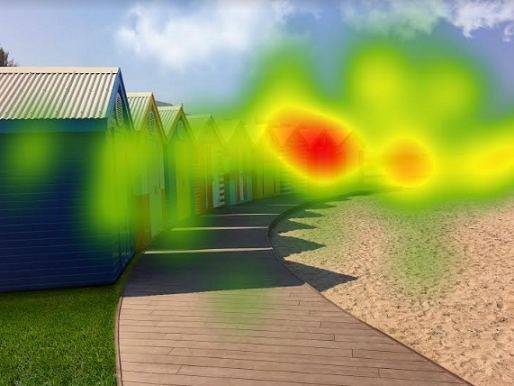 Majid Al Futtaim, the leading shopping mall, communities, retail and leisure pioneer across the Middle East, Africa, and Asia, unveiled the results of a first of its kind neuroscience study in the region, designed to identify the most powerful drivers behind emotional attachment to urban developments and communities.
Majid Al Futtaim, the leading shopping mall, communities, retail and leisure pioneer across the Middle East, Africa, and Asia, unveiled the results of a first of its kind neuroscience study in the region, designed to identify the most powerful drivers behind emotional attachment to urban developments and communities.
Conducted by Neurons Inc and commissioned by Majid Al Futtaim; the UAE-based study used Electroencephalography (EEG) and Eye Tracking technology to measure how participants subconsciously as well as consciously responded to nearly 100 images of urban developments and landscapes from around the world. Over 1 million data points were then analysed to determine the findings.
Neuroscientists found the elements of everyday human activity (a visual focus in 80% of the 10 best performing images), greenery (70%), artistic features (50%) and bright colours (50%) were the most powerful drivers of emotional engagement with destinations and environments.
An emphasis was put on greenery, which was naturally landscaped and positioned in a way that provided a sense of human scale and privacy. The study also highlighted a subconscious preference for shades of blue and green in design and artistic features that people can interact with and embrace natural materials.
The strongest negative responses were recorded in images that displayed a visible lack of human interaction and natural landscapes. Dirt and damage were also shown to have an immediate negative and lasting impact on participants.
The announcement comes as the governments across the region; continue to place significant emphasis on transformative policies and practices for the real estate sector in a bid to drive economic diversity. In the UAE, both public and private sector entities are focused on enabling a nation-wide happiness agenda that seeks to enhance happiness and satisfaction for citizens and expats in the UAE through better services and infrastructure.
Hawazen Esber, Chief Executive Officer of Majid Al Futtaim – Communities, said: “Historically, researchers and developers have focused on the conscious drivers of preference for real estate design and development. In a testament to the region’s progressive take on the transformation of the real estate sector; our unique neuroscience research study enables a deeper understanding of what subconsciously drives emotional value and a sense of belonging for our customers and the wider community.”
Through the study, neuroscientists identified a clear distinction between conscious and subconscious responses. For instance, when asked, respondents consciously indicated a liking for vibrant environments with highly active social interaction. However, when analysing subconscious brain activity, scientists found that simple, everyday human activities around homes and communities have a more positive and lasting impact on our minds.
“As destination creators, it is our vision and role to create mixed-used destinations with a heart and soul; where people can come together to celebrate life and create great memories with their loved ones, every day. The study helps us identify crucial elements that make for happy, heathy communities and become the foundation for how we bring our integrated retail, leisure and entertainment offering to design mixed-use destinations that drive holistic value for residents and surrounding communities,” he continued.
The neuroscience study was designed in collaboration with Neurons Inc to inform Majid Al Futtaim’s unique approach to placemaking – an approach to property planning, development and design that encourages emotional and functional value. Across the globe, the effective integration of placemaking principles has been seen to substantially enhance the commercial value of destinations and improve resident and visitor experiences.

